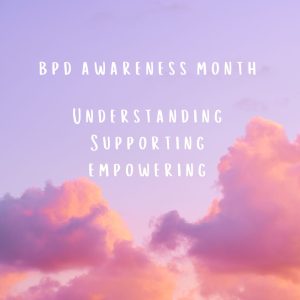In a world where most interactions happen online, the way we communicate has changed dramatically. Social media platforms allow us to connect with others instantly, and they also bring new challenges—miscommunication, conflict, and comparison. These challenges can strain relationships and impact our well-being. This is where Dialectical Behavior Therapy (DBT) comes in, offering a set of tools that can help us navigate these interactions effectively.
DBT’s interpersonal effectiveness skills are designed to improve communication, maintain relationships, and set healthy boundaries. Whether it’s resolving conflict in a Facebook comment thread or expressing your needs in a text, DBT skills can help you communicate more clearly, calmly, and confidently. Let’s explore how these skills translate to today’s digital age.
1. DEAR MAN: Navigating Direct Communication Online
One of the most powerful DBT tools for effective communication is the DEAR MAN skill. This acronym stands for:
– Describe
– Express
– Assert
– Reinforce
– Mindfully
– Appear confident
– Negotiate
Using DEAR MAN can be particularly useful when writing emails, direct messages, or even crafting a social media post. For example, if you want to address a disagreement in a respectful way:
– Describe the situation without exaggeration or judgment: “I noticed you commented on my post about [topic]…”
– Express how you feel: “I felt a little hurt by what you said.”
– Assert your needs clearly: “I’d appreciate it if we could talk about this in a more respectful way.”
– Reinforce the benefits: “I think it’ll help us communicate better.”
– Be mindful of your tone and stay focused on your goal.
– Appear confident in what you’re saying.
– Negotiate if necessary: “Can we agree to talk about this later when we’re both calm?”
By following DEAR MAN, you can avoid misunderstandings and engage in healthier, more productive conversations online.
2. GIVE: Maintaining Relationships on Social Media
Social media can make relationships feel distant or superficial, especially when most interactions are reduced to “likes” or emojis. DBT’s GIVE skill helps maintain positive relationships by focusing on:
– Gentleness
– Interest
– Validation
– Easy manner
When engaging with others online, it’s important to approach conversations with gentleness, even when disagreeing. Be genuinely interested in what the other person has to say, and validate their feelings. This doesn’t mean you have to agree with them, but simply acknowledging someone’s perspective can go a long way toward maintaining a healthy relationship.
For example, responding to a friend’s difficult post with, “I hear how frustrated you are, and I’m here for you,” instead of offering advice or judgment, can strengthen your connection. An easy manner—a friendly, calm tone—can help de-escalate tension and foster understanding, even in challenging conversations.
3. FAST: Upholding Your Self-Respect in Online Interactions
In the world of social media, where comparisons are constant and validation often feels external, it’s easy to lose sight of your own self-respect. The FAST skill from DBT helps protect your self-esteem during interactions:
– Fairness
– Apologies (only when needed)
– Stick to your values
– Truthfulness
Being fair to yourself and others in online discussions is essential—don’t compromise your values or self-worth just to keep the peace. Only apologize when you’ve truly done something wrong; over-apologizing can diminish your confidence and lead to resentment.
Sticking to your values online is crucial in a space that often pressures people to conform. If being authentic is important to you, don’t feel the need to present a perfect version of yourself for social media. Finally, being **truthful** means expressing your genuine thoughts and feelings, rather than crafting an image of what you think people want to see.
4. Setting Boundaries: Knowing When to Disconnect
Boundaries are just as important in the digital world as they are in real life. Social media can blur the lines between personal and public, making it difficult to protect your emotional well-being. DBT teaches us to set and enforce boundaries as a form of self-care. This could mean:
– Muting or unfollowing accounts that trigger negative emotions.
– Limiting the time spent on platforms to avoid burnout.
– Setting clear expectations with friends about how and when you engage online.
Setting these boundaries isn’t selfish—it’s a way of protecting your mental health and preserving your energy for more meaningful interactions.
5. Handling Online Conflict: Finding Balance Between Opposing Forces
Conflict on social media is almost inevitable, whether it’s a heated debate in the comments or a passive-aggressive post from a friend. In DBT, we learn that life often involves balancing opposing forces, and this is especially true in online interactions. The dialectic of being both assertive and respectful is key to resolving conflicts in a healthy way.
Instead of jumping to defensiveness, take a step back, reflect on the bigger picture, and decide how to respond effectively. DBT encourages us to validate the other person’s perspective while also standing firm in our own truth—creating a balance that helps de-escalate tension and encourages mutual understanding.
Conclusion: Thriving in the Digital World with DBT
As our lives become increasingly digital, it’s more important than ever to develop strong interpersonal skills that extend beyond face-to-face interactions. DBT’s interpersonal effectiveness tools—DEAR MAN, GIVE, FAST, and boundary-setting—offer a roadmap for navigating social media with grace and authenticity.
By applying these skills, you can create more meaningful connections, avoid the traps of comparison and conflict, and uphold your self-respect in an often chaotic online world. Social media may have changed the way we communicate, but with the right tools, it’s possible to thrive in both our digital and real-life relationships.





